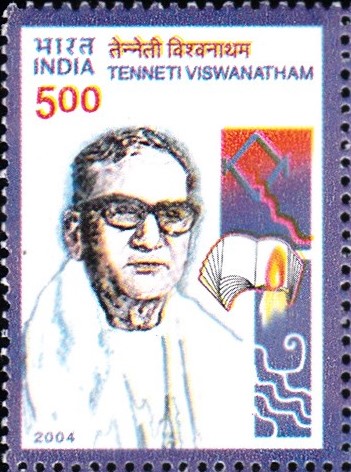
Tenneti Viswanatham
A commemorative postage stamp on the Death Anniversary of Tenneti Viswanadham, an Indian politician from Visakhapatnam :

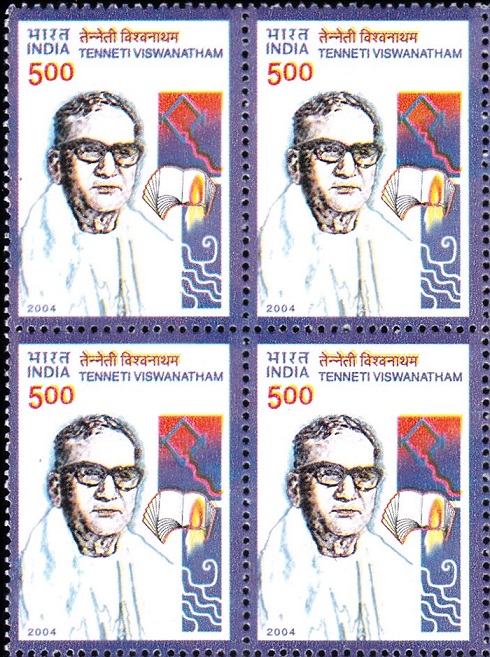
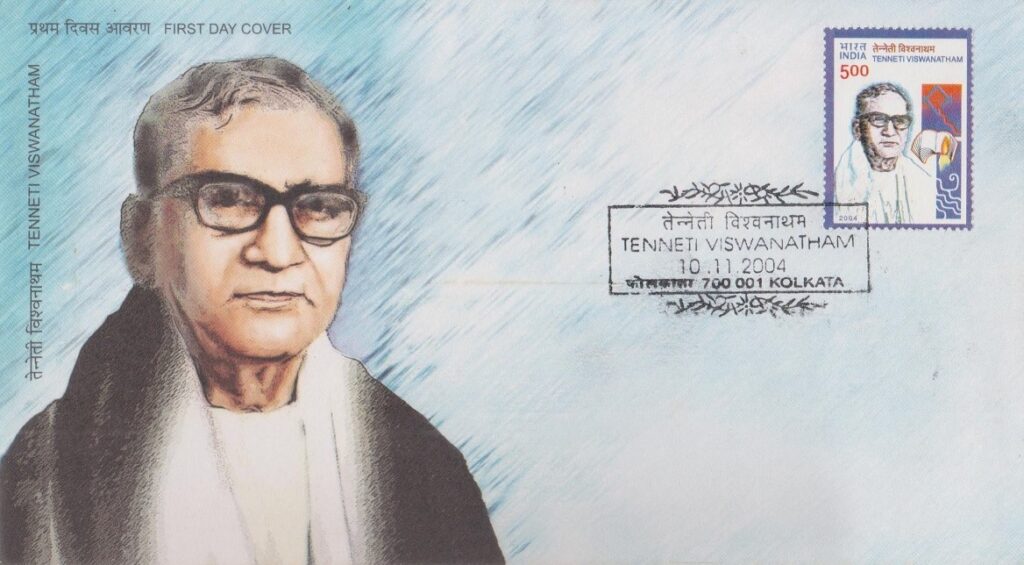
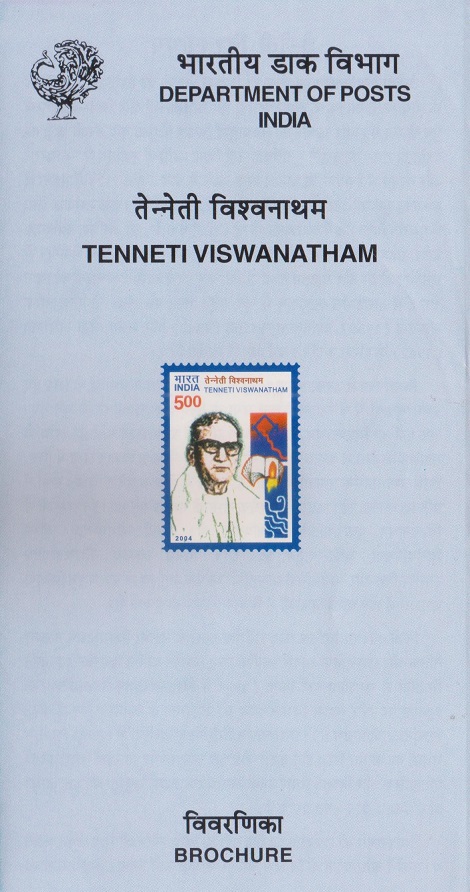 Issued by India
Issued by India
Issued on Nov 10, 2004
Issued for : The Department of Posts is happy to bring out a commemorative postage stamp in honour of this great political legend.
Credits :
Stamp & FDC : Bharati Mirchandani
Cancellation : Alka Sharma
Type : Block of 4 Stamps, Mint Condition
Colour : Multicolour
Denomination : 500 Paise
Print Quantity : 0.6 Million
Printing Process : Photogravure
Printer : India Security Press, Nashik
Name : Tenneti Viswanadham
Born on Sep 21, 1895 at Lakkavaram, Andhra Pradesh, India
Died on Nov 10, 1979 at Visakhapatnam, Andhra Pradesh, India
About :
- Tenneti Viswanatham was born on September 21, 1895 at Lakkavaram, Veeravalli Taluk, Visakhapatnam District as the second son of Gowripati Sastry and Chittemma. He lost his wife soon after marriage at the young age of 16, but he never re-married. Having earned a Master’s Degree in English Literature and Bachelor’s Degree in Law, he began practice in Madras in 1921 and gave it up in 1922. He had a stint as a Lecturer at the Gujarat Vidyapith during 1922-23. Coming under the influence of Dr. Annie Besant, Sri Aurobindo, Rabindranath Tagore, Mahatma Gandhi and Marepalli Ramachandra Sastry (a freedom fighter) and responding to the clarion call of Mahatma Gandhi, he gave up his worldly pursuits, plunged into the Non-Cooperation Movement in 1922 and courted imprisonment for a total period of about 5 years between 1930 and 1946 for his participation in the Salt Satyagraha (1930), Individual Satyagraha (1940) and Quit India Movement (1942).
- Starting his legislative career with his election to the Madras Legislative Assembly from Visakhapatnam in the first-ever elections held to the Legislatures in 1937, Viswanatham served the Madras Legislative Assembly as Leader of the Opposition in 1951, the Andhra Legislative Assembly as Minister for Finance, Law and Religious Endowments in 1953 after the separation of Andhra from the Madras Presidency and the Andhra Pradesh Legislative Assembly as Leader of the Opposition 1962. He became a member of the Lok Sabha in 1967. Viswanatham was held in high esteem as he enriched the debates in these august Houses with his perceptiveness, gentle humour, wit and wisdom, affable disposition, encyclopaedic memory and rich experience of public affairs.
- A man of his convictions who believed in probity in private and public life, Viswanatham set high moral and political standards, never sacrificing principles for expediency. His resigning the chairmanship of the Visakhapatnam Municipality and the membership of the Madras Legislative Assembly in 1951 bear eloquent testimony to his unimpeachable integrity. An intellectual par excellence, Viswanatham’s monumental and historic 18-volume report on Zamindari Abolition, which became the basis for modern land reforms, is a tribute to his prodigious industry, intellectual acumen and tenacity of purpose.
- The secret of Viswanatham’s success lay in the fact that he carried people along with him. He worked tirelessly for the development of Andhra Pradesh. The Krishna Barrage at Vijayawada, the Nagarjuna Sagar Project, Sri Venkateswara University at Tirupati, equitable distribution of Krishna and Godavari river waters and the first shore-based modern and sophisticated integrated steel plant at Visakhapatnam stand as monuments of his dedication to the all-round development of Andhra Pradesh. At the national level, Viswanatham left an indelible mark as the Chairman of the Company Law Advisory Committee, All India Coffee Board, Working Group of the Administrative Commission on Life Insurance and the Select Committee on Amendment to Section 192 of the IPC.
- A secularist to the core, Viswanatham was against casteism in all its ugly manifestations. A philanthropist and a man of charitable disposition, he donated his land to the Bhoodan Movement of Vinoba Bhave and to other charitable institutions. As convenor of the J.P. Movement for Civil Liberties, the democrat in Viswanatham rebelled against the imposition of Emergency in 1975. He was arrested under the MISA and incarcerated for six months. He was President of Andhra Pradesh Janata Party for 3 years.
- Viswanatham, on whom the Andhra University conferred the honoris causa of D.Litt., was a Vedic, Sanskrit and Telugu Scholar, spiritualist, litterateur, linguist, author, poet and dramatist. The lure of office (Tamrapatra, political pension for freedom fighters and the award of “Padma Bhushan” all of which he rejected) did not attract this simple, honest man who adopted simple living and high thinking as his guiding principle. He breathed his last peacefully in Visakhapatnam around midnight on November 10, 1979 at the age of 84.
- Till today, Viswanatham lives in the hearts and minds of people because of his noble deeds and through the literary forum, Visakha Saraswata Vedika, founded by him in 1960, which meets regularly, contributing to the enrichment of life.
- Text : Based on material given by the proponent.


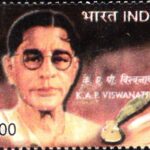


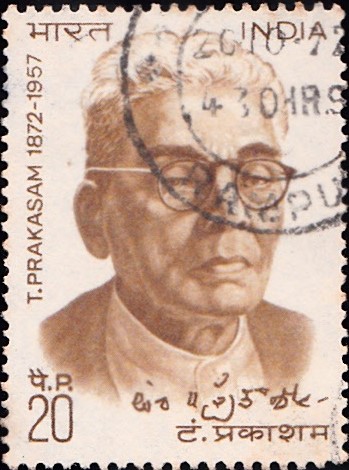
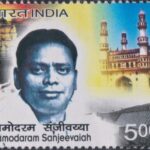
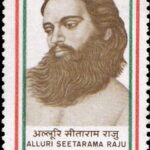
Valuable information of legand personolaty of sri Thenneti viswanadham garu.as iam followed with him in my teenage from 1967 to1979. and he taken me in his jeep and kept me in his side chair.and addressed the general election meeting with him in visakha municipalstadium in1977 Loka Sabha election very lucky and memorable.to me.thanque.